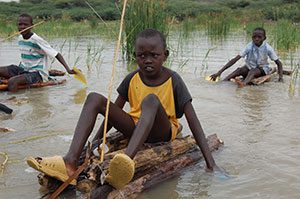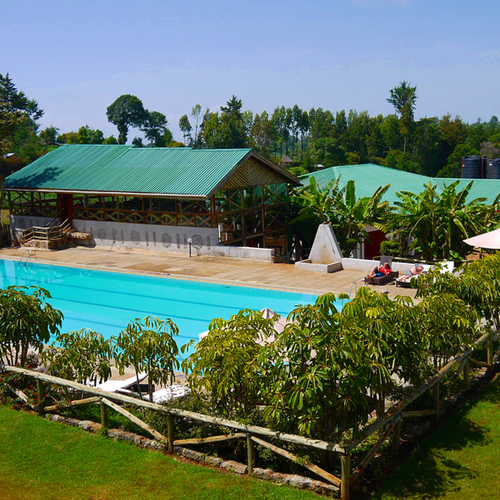Kenya College Intern Program Overview
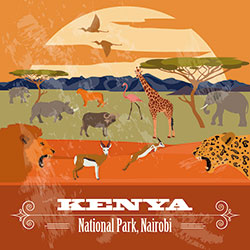
Program Length
2-5 weeks
Dates
June 30 – July 26
Focus
-
Service and Mentoring
-
Athletics
-
Adventure
Max Group Size
10
Cost
$595/wk
“Before I came to Kenya, I was on the edge of losing my passion for the sport. Living the Kenya lifestyle for six weeks help me develop my passion for the sport all over again. Because of Kenya, I am loving what I am doing, because I am constantly reminding myself of why I am doing it. I guess you could say, Kenya help me discover my ‘why’.”
“Every part of this trip was truly fantastic. This being said, my favorite part of this trip was making unforgettable friends and mentors that I will cherish and keep in touch with for the rest of my life.”
“Strive completely transformed me as a person. The leaders really taught me to how to train and be the best person that I could be.”
“As a student who had never visited Africa or gone on a safari before, Strive served as an absolutely incredible opportunity to experience a wide variety of adventures that Africa had to offer. Not only was I able to train with motivated and hard-working peers, which in itself was a privilege, the cultural experience provided was like nothing I had ever come across before.”
“The HATC was a beautiful place to stay. It’s not every day that you get to train in the same gym as Olympic athletes. Group leaders were very helpful, nice, understanding and as organized as Africa will allow one to be. And the outings were absolutely incredible experiences, not just the destinations, but the roads to them as well.”
- Specifically designed for college athletes who want to get in a great summer of training without sacrificing the opportunity for a summer internship and living/traveling abroad.
Be more than a tourist. Immerse yourself in the Rift Valley, learn about Kenyan culture, and explore the surrounding area.
- Don’t just do service; learn about service. Take part in meaningful, community-driven projects and learn about how to set up projects to serve others in an ethical way.
- Train at high altitude along beautiful dirt roads at over 7800 ft (2400 m) and learn from your fellow interns, leaders and world class Kenya runners how to take your athletics to the next level.
- Enjoy buffet meals at the High Altitude Training Center, run by Lornah Kiplat, World Champion and all around great person.
- Take on one or both types of Strive internship.
- Developmental Programs with a focus on educational development in leadership, athletic training, coaching and service learning, with no interaction with the Strive high school students (allowing more time to focus on your own individual athletic training).
- Mentorship Programs emphasize the same service learning concepts and specifically the interactions with Strive high school students
Responsibilities
As a Strive intern you will have many roles and responsibilities including, but not limited to:
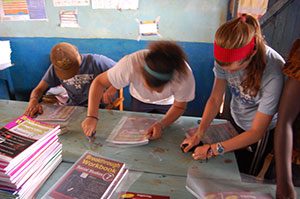
Mentorship: For interns taking part in the Mentorship Program (i.e. when Strive high school students are present), an important part of the intern experience is acting as a mentor for these younger Strivers. Each and every one of our high schoolers looks up to you as a role model and has a million questions about college, athletics, or life in general. Each day we ask that you be available to run/exercise/play sports with our students (one morning session and one afternoon session). Please keep in mind that if you are a college athlete, these runs or workouts may be less rigorous than what you are used to and this may be another example of where your personal training will come second. Additionally, we’ll have activities in the evenings which you guys will help organize and lead; these might be watching a movie, playing cards, or even a swing-dance lesson (if you feel like teaching it)! The final mentoring responsibility will be giving a “Strive-talk” to your fellow interns and the group of high school students. This is your opportunity to have the floor where you’ll choose a topic that’s meaningful to you and give a short talk and Q&A session – always a highlight for interns, Strivers, and staff alike.
Social Media. An important part of Strive is sharing what we are doing on the ground (the service learning, travel, and daily program life) with family and friends of current Strivers as well as past and future participants. You will have a turn at the helm of the blog and Facebook/Instagram/Twitter feeds, which should be updated on a daily basis. A second portion of our social media is getting video clips and photos of you and our kids exercising, teaching, or simply answering questions about their experience with Strive.
Exploration/Research. Get out and explore! Scouting out new hiking trails, running routes, and activities around town that the whole group can take advantage of will be an integral part of your role. We might even send you on a research mission to find a tractor that we can rent for a project we’re working on or (if you speak Spanish) to the next town over to be interviewed on the radio about an upcoming event we’re hosting. Having extra minds around to help us solve problems is an invaluable part of our intern program.
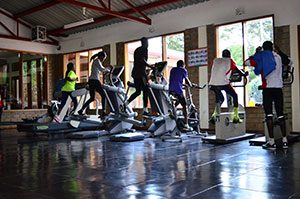
We’ve had Strivers run up to 140 miles/week but keep in mind that running that much at high altitude is going to wear you out and you will be need to be extra careful that you are getting enough sleep and food. Most of our interns fall somewhere in the 30-90 miles per week range and find that it’s pretty easy to get that amount of training in per week. Keep in mind that training is optional. If you simply want to be a part of our service program and help us mentor students, that’s just fine with us.
Outreach. Before your time in Peru or Kenya, we’ll ask you to do some outreach to help share Strive’s mission and goals with other student athletes who might be interested in the program. This could be as simple as having a conversation with your high school coach or something more formal like hosting an info session in your hometown. It should be fun and relaxed and mostly an opportunity for you to share your excitement about your upcoming internship with Strive!
Food and Lodging
In Kenya, interns will stay at the world-famous High Altitude Training Center (HATC), alongside world-class athletes from around the world. Rooms have private bathrooms and are shared with other interns. Use of all the HATC facilities and meals are included with your program fee.
The setting is beautiful and the common-spaces (courtyards, living rooms, etc.) make for great places to relax, so you likely won’t spend a ton of time in your room. The more time spent exploring the HATC and surrounding area, the more likely you are to “bump” into David Rudisha or others as many Kenyan athletes train in and around Iten while preparing for races.
You will be eating three meals per day at the HATC with food locally sourced and prepared fresh by a Kenyan chef. Food options will vary but expect a healthy amount of rice, veggies, and fruit. There is typically a soup/salad bar at each meal along with a main dish and there are often second helpings available. A staple food of Kenya, Ugali, a dense filler somewhere in between bread and rice will be available at almost all meals and is a must try while in Kenya.
This will be enough food to fill you up at meals but it may not be enough if you are planning on running 70+ miles per week. If you are running that much, you should expect to supplement with some snacks from town or that you’ve brought from home.
Typical Day
The following are a few examples of what an average day will look like while you are on the ground and part of our programs. Keep in mind that your schedule will vary from day to day and come prepared with an eagerness to learn and be open-minded and flexible. Remember that you will be visiting, serving and living in a place that is likely very culturally different from home. Plan to be busy while in country as your days will be filled with activities, service projects, workshops and much, much more. Daily schedules are similar in Peru and Kenya. We, at Strive, are committed to ensuring all of our participants have a wonderful time and with that in mind each group will be able to craft their daily and weekend schedules to some extent. We welcome and value feedback, and as long as your ideas and suggestions align with the values and mission of Strive, we will do everything we can to make sure those activities and ideas are put into action.
7:30am: Meet with group for a morning run or workout session.
8:45-9:45am: Breakfast
10:00-11:30am: Service Learning Discussion – How do we do service? What are potential pitfalls of Service?
11:30-12:00pm: Team Building Activity
12:00-1:00pm: Lunch
1:00-2:00pm: Free Time (possibly a nap!)
2:00-4:00pm: Begin planning service work
-
- What are the needs of schools/projects?
- How can we divide labor?
- Where are we most useful?
4:30-6:00pm: Afternoon run/workout session
6:00-7:30pm: Group Dinner
7:30-9:00pm: Cards/Games/Movies or free time depending on the day
7:30am: Meet with group for a morning run or workout session.
8:45-9:45am: Breakfast
10:00-12:00pm: Service Projects (working in a local school, manual labor projects)
12:00-1:00pm: Lunch
1:00-2:30pm: Free Time (possibly a nap!)
2:30-4:00pm: PE Class with Kiptabus Primary School
4:30-6:00pm: Afternoon run/workout session
6:00-7:30pm: Group Dinner
7:30-9:00pm: Cards/Games/Movies or free time depending on the day
7:30am: Morning runs/workouts with our High School students.
8:45-9:45am: Breakfast
10:00-12:00pm: Service Projects (working in a local school, manual labor projects)
12:00-1:00pm: Lunch
1:00-2:30pm: Mentoring session with High School students
2:30-4pm: Playing sports with kids at Kamirany Primary school and planning for Iten Sports Day
4:30-6:00pm: Afternoon run/workout session
6:00-7:30pm: Group Dinner
7:30-9:00pm: Strive Talk and discussion with our High School Students
Note: Weekend schedules will generally look a lot different and will likely include a day trip to an exciting location or occasionally a rest and relaxation day to regroup from a busy week of service, athletics and adventure.
SCIP Kenya - 5 weeks
- Your program fee includes: accommodation, 3 meals per day, 24-hour-a-day support both on the ground and in the US (including a designated Intern Group Leader who will work specifically with Strive interns), your volunteer placement and support, and access to on-call US based medical staff. If you are planning on running 70+ miles per week, you should understand that you may need to supplement your three meals per day with snacks and other extras to make up for all of those calories you’re burning on a daily basis. See All the Details tab for more information regarding meals.
- The program fee DOES NOT include: – International airfare – Domestic transport to Iten (though this can be arranged through Strive) – Other activities/outings* – Funding of Service Projects as Strive relies on outside fundraising money to fund all of our on the ground projects
*These include the trek to Machu Picchu, safari and other day trips. Most of the activities that we do with high school students will also be open to our interns and Strive will do our best to make those affordable to our intern
- **Note: While we encourage interns to stay for the full length of the program and preference in the application process will be given to those that commit to the full program, we do accept applications from interns who for financial or scheduling purposes can only attend a portion of the program. Please contact us if you are interested and we’ll chat about the options that are available based on the program needs and values.
We take applications for the Strive College Intern Program on a rolling basis. The earlier you apply, the better chance you have of being accepted. In general, our programs start to fill around the end of the calendar year, so you should be thinking about applying in the fall. That said, sometimes we still have openings at the last minute and have taken qualified applicants as late as April and May. Just email or call us if you’re considering applying and we’ll let you know if there’s still space! The biggest difference is the presence of Strive high schoolers during the Mentorship programs. These programs feature a focus on interaction with our younger participants while the developmental programs mainly focus on the education of you, the intern, with regards to service, athletics, leadership, coaching, etc. The developmental programs often have more time for your own training, as well, since it’s just the intern group on the ground. The way that many summers work is that our interns will have the option to take part in both programs. Usually, the interns will arrive in early June and the first 2 weeks will be a developmental program with just interns and staff. After that, the high school group will arrive and the Mentorship program will begin. So, an intern staying 5 weeks (as most do) would be able to take part in both programs. If you don’t have the time to stay all 8 weeks, we have had interns stay for just one of the programs (or even, just a portion of one program). We try to construct a team of interns that is strong in the sum of its parts and so our interns generally come from a variety of backgrounds. No, you don’t need to be a serious runner or athlete. In fact, our high schoolers aren’t all serious runners or athletes, so we don’t want all of our interns to be serious runners or athletes either. Yes, we do try to have some high level athletes, but we also look to have some interns who may be club runners or other-sport athletes to show our younger students that there are lots of ways to “be an athlete.” No, you don’t need to speak Swahili to apply. In fact, we’ve only had a few interns that had any knowledge of Swahili at all. Certainly it will enhance your application if you have some Swahili ability, but it is not counted against you if you do not know any. Of course, you will need to know English. Click on the “All the Details” tab for a full answer! See the “Typical Day” tab. In many ways, the structure of the two programs is quite similar. The broad-strokes, day-to-day schedules will look relatively similar, the focus on service, athletics, and adventure is still there, the interaction with high schoolers is still there in mentorship programs. Both programs are located at high altitudes, have miles of dirt roads and trails to run on, and other exercise options available. That said, the countries themselves are quite different. The Sacred Valley in Peru is vast, dry, and located high in the mountains at 9,700 ft. while the Rift Valley in Kenya is greener (and thus a bit wetter) and lower, at about 7,800 ft. Kenya and Peru, though both developing countries, are also very different places from a cultural perspective. Pisac, where Strive-Peru is based, is probably slightly more developed than Iten. More tourism comes through the town and thus things like restaurants, internet, and hot water are a bit easier to find. Though it may be less developed for tourism, Kenya undeniably has the greater running culture – maybe the greatest on Earth – and Iten has some fantastic facilities. Where our groups stay in Kenya (Lornah Kiplagat’s High Altitude Training Centre) is equipped with a top-end wait and cardio room, pool, etc. Moreover, the culture of athletics can be seen everywhere as literally hundreds of competitive runners parade down the roads each morning. There are few other places like it on Earth. In contrast, we are very much creating our own running culture in the Sacred Valley. Strive has funded a gym which is part of the hotel where you’ll be staying and is equipped with weight machines, free-weights, stationary bikes, mats, etc. We also have a few mountain bikes you can take out on the roads. And between our staff and friends in Peru (Ty has befriended many of the elite runners in the region), we’ve got plenty of fast people to impart some wisdom and push you through your harder sessions. Weekends are very much up to the group. We like to give you guys as much freedom as possible and a big part of that is planning how you want to spend your free time. There are some day trips you can take around the Kerio Valley to go hiking in a forest, go on long runs on a long road through a valley, or go into Eldoret town for some shopping and more western food as a break from Iten. Some people will likely want to do their longer runs on the weekends as well, but we’ve found this is easy to fit in. The weekends is also time for doing laundry and catching up on communicating back home, as well as prepping for tutoring or whatever work you might be doing the following week. This past year some of our weekend trips included: One important note is that your program fee does NOT cover these outings (see Dates & Fees tab for details on what is/isn’t covered). Still, most of these activities are not super expensive. Going hiking costs nothing other than your food and water and even going into Eldoret would only cost a few dollars in transportation costs. See the “All the Details” tab for a description of how food and meals work. And yes, we can (and have) had interns who have been vegan, vegetarian, pescetarian, non-gluten, non-dairy, you-name-it. If you have a very restrictive diet you may just end up eating a lot of the same thing, but it can be done. Let us know if you have any specific food issues about which you have questions. Strive does have our own financial aid program, but unfortunately aid is currently only available for our main high school programs. If you’re interested in the StriveCollege Intern Program but would struggle to pay the program fee, we’d recommend asking your school if they have any grants or stipends for unpaid internships. We’ve had many college interns pay for some or all of their expenses this way. Many students have also had great success with personal fundraising through traditional fundraiser, crowd-sourcing, pledging, etc. Lastly, you can always contact us if you have any questions or if you’re looking for more help.
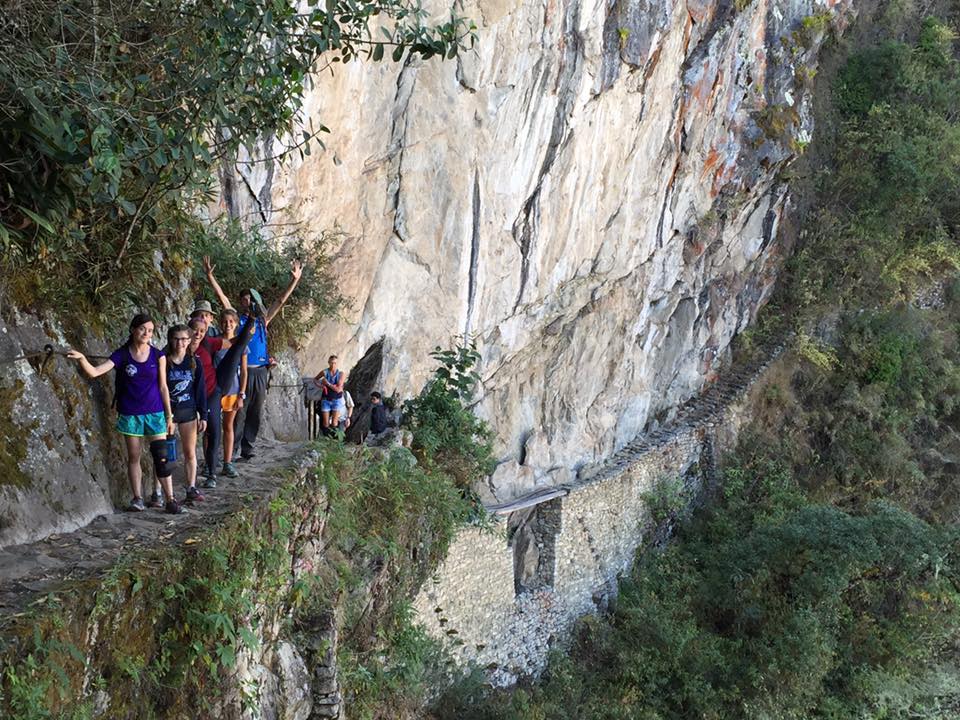

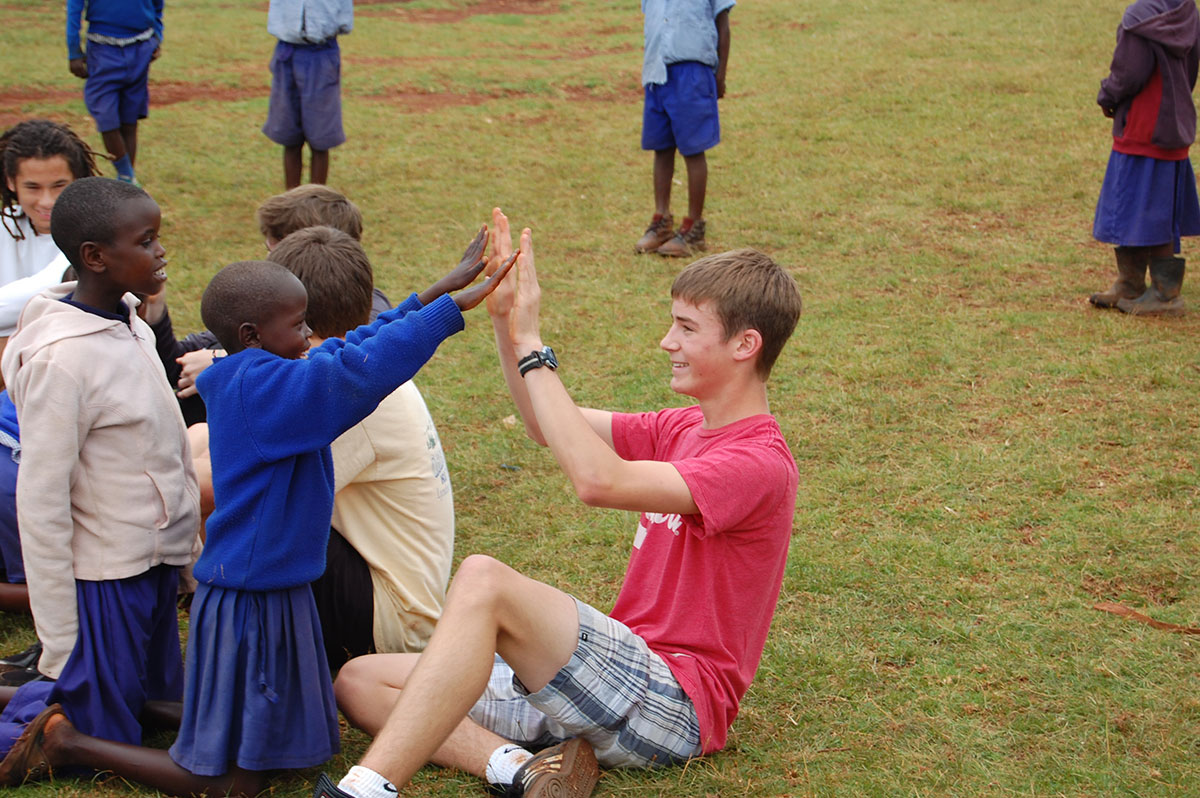
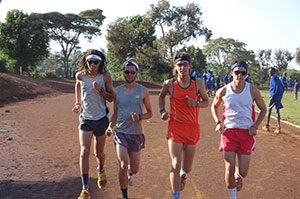 Be more than a tourist. Immerse yourself in the Rift Valley, learn about Kenyan culture, and explore the surrounding area.
Be more than a tourist. Immerse yourself in the Rift Valley, learn about Kenyan culture, and explore the surrounding area.